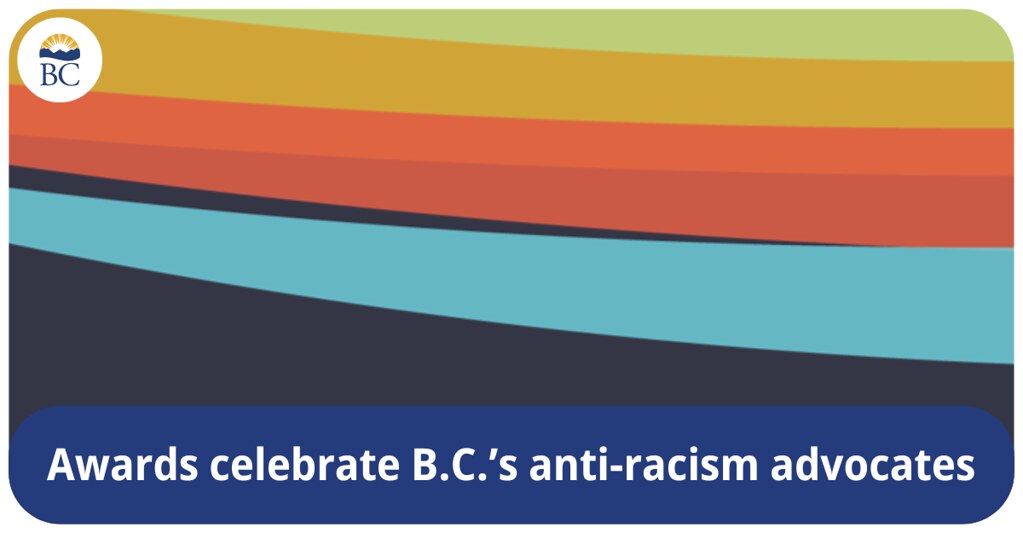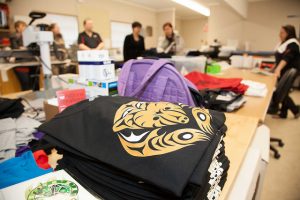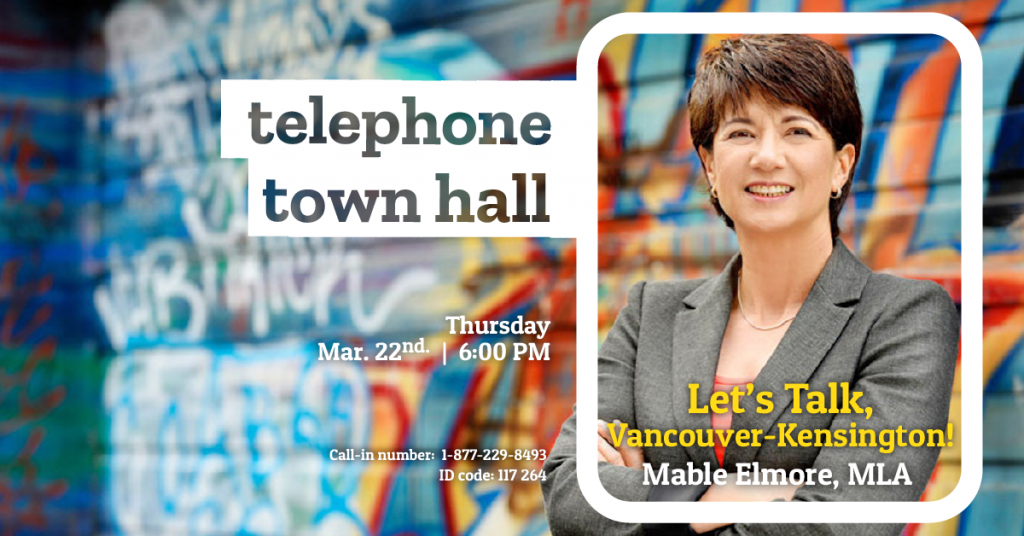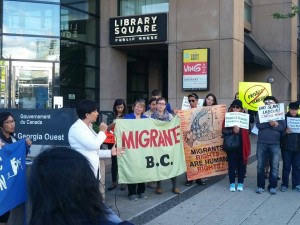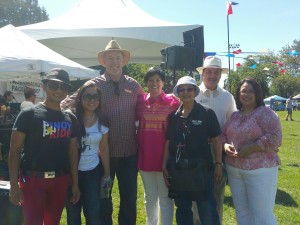Nearly 80 people and organizations were nominated for the 2024 B.C. Multiculturalism and Anti-Racism Awards, honouring their efforts to combat racism and create a more inclusive B.C.
There were five Multiculturalism and Anti-Racism award recipients and six honourable mentions, many of whom work directly with refugees, immigrants and newcomers to B.C.
Mable Elmore is the Parliamentary Secretary for Anti-Racism Initiatives, and a Member of the Legislative Assembly of B.C. for Vancouver-Kensington.
“I always value the opportunity to shine a light on and celebrate the work being done by so many to promote multiculturalism and anti-racism in B.C.,” Elmore said.
Elmore also said: “The journey to being anti-racist is not always easy, and the awards program is a vital part of our efforts to foster understanding, appreciation and respect for the many vibrant cultures and people that make up our province.”
The awards ceremony, held every year on the International Day for Elimination of Racial Discrimination, took place in downtown Vancouver on March 21, 2024 in front of an audience of more than 150 people.
Since the awards were launched in 2008, nearly 60 people and organizations have been recognized.
The awards and recipients were:
Intercultural Trust – for an outstanding individual or organization for their work in building intercultural trust and understanding and/or reducing racism and hate between communities.
2024 recipients:
VIDEA was established more than 40 years ago, with the mission to end global poverty and create a more just and equitable world. More than half of the staff and board members of VIDEA identify as Métis, Inuit, First Nations, Black or African. Their programs have reached more than 200,000 individuals.
Thais Pimentel Cabral is a teacher whose innovative teaching methods prioritize students’ identities and cultural connections, creating a classroom environment rooted in shared values. Her initiatives actively combat racism, foster inclusivity and empower students to take pride in their identities. She has played a key role in furthering the province’s anti-racism initiatives in K-12 schooling.
Honourable mentions:
The OTHER People was created by Rabbi Philip Bregman in 2021 with the goal of helping dismantle the “us vs. them” divide. It is comprised of community leaders and anti-racism organizations across the racial, religious and cultural mosaic.
The Lekwungen Traditional Dancers was founded in 1978 at the Victoria Native Friendship Centre. The group is one of the most sought-after to represent the Lək̓ʷəŋən people at significant events throughout B.C. Through their song and dance, they honour their ancestors and showcase their Nation’s values.
Cherie Chai Kar Yee is an artist, teacher and the founder of the Speak Write Academy, which was started in October 2020. Through her cultural workshops, Cherie Chai aims to fight racism, promote intercultural trust through the power of language and arts, and contribute to Indigenous language revitalization efforts.
Breaking Barriers – handed to an outstanding individual or organization for their work in tackling systemic or institutional racism and reducing barriers for marginalized communities.
2024 recipients:
The Rainbow Refugee Society was established in 2000 to help refugees and new immigrants to Canada fleeing persecution based on their sexual orientation, gender identity and expression, and HIV+ diagnoses. The organization collaborates directly with government and social service partners to address intersectional barriers faced by forcibly displaced 2SLGBTQIA+ individuals.
Anetha Kashuba is the main driving force behind Connecting the Dots, an Indigenous learning tour that emphasizes the importance of education in breaking down barriers and ownership over one’s own journey toward truth and reconciliation. Anetha is proudly Métis and works at the Vernon and District Immigrant and Community Service Society.
Honourable mentions:
Lama Mugabo is a former refugee from Rwanda who works as a racial justice and housing organizer in Vancouver’s Downtown Eastside. He primarily focuses on making B.C. a better place for Black and racialized people, supporting newcomers, creating pathways to food justice and confronting anti-Black racism, including through his Black leadership program.
Anthea Williams oversees an outreach program in downtown Vancouver that offers crucial assistance to youth facing issues such as homelessness, poverty, substance-use disorders, mental-health challenges and exploitation. They are also a passionate advocate for 2SLGBTQIA+ youth, especially young refugees and newcomers.
Emerging Leader – handed to an outstanding young person, aged 15 to 30, for their work in building intercultural trust, tackling racism or reducing barriers for marginalized communities.
2024 recipient:
Dacious Richardson was born in Monrovia, Liberia, and moved to Canada in 2011. He now works for the Surrey School District as a liaison and mentor. He is active in his community’s initiatives targeting systemic racism, discrimination and cultural barriers. He is also an advocate for young refugees, immigrants and newcomers.
Honourable mention:
Paolo Bigit has been leading the Youth for Youth (Y4Y) Program of Kamloops Immigrant Services for the last year. The program fosters inclusivity and connection within Indigenous, Black and people of colour communities through open dialogue, education and shared experiences.
